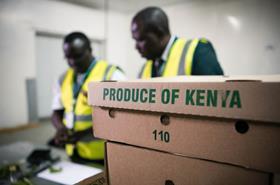
Coleacp has always been committed to the social, environmental and economic principles of sustainable development. This commitment is evident in the association’s three pillars: a Sustainability Charter, a Sustainability Self-Assessment System for African, Caribbean and Pacific (ACP) companies in the fruit and vegetables sector; and a capacity-building system that promotes good agricultural practices.
All the organisation’s activities, funded mainly by the EU, the French Development Agency and the Standards and Trade Development Facility of the World Trade Organisation, have a strong sustainability focus.
The Covid-19 challenge
2020 brought additional challenges due to the Covid-19 pandemic and restrictions, which are having a major impact on ACP horticultural producers and exporters in local, regional and global markets.
In March 2020, Coleacp collected testimonies from ACP members and partners, first-hand accounts that were a valuable accompaniment to more systematic country surveys assessing the impact of Covid-19, carried out in collaboration with partner organisations.
According to Coleacp, this feedback enabled the formulation of a Covid-19 Action Plan focused on five key needs: market access and food security; coronavirus health and safety; support to business management; advocacy with policymakers; and information and communication.
For such support to be successful, Coleacp’s expanding local presence, with its network of 20 in-country representatives in sub-Saharan Africa, was crucial, as was the faster expansion of digital learning and online data and information.
NExT Kenya
The EU-funded NExT Kenya programme was successfully launched in May 2020 despite Covid-19 restrictions. NExT Kenya (New Export Trade) aims to enhance the competitiveness of the country’s horticultural exports by supporting MSMEs and business membership organisations in meeting phytosanitary and market requirements.
Coleacp’s surveys showed the impact of the pandemic on Kenyan horticultural exporters in 2020. Despite measures to cut costs and secure revenues, almost three-quarters of respondents did not financially break even in May 2020. In response, Coleacp organised a series of virtual Business Survival Bootcamps, as well as individual e-coaching for Kenyan companies.
NExT Kenya builds on the existing Fit For Market programmes in the country. Coleacp has now established an office and a Kenyan team in Nairobi. Activities have included support for companies working towards sustainable certifications, such as the Sedex Members Ethical Trade Audit (SMETA) and the GlobalGAP Risk Assessment on Social Practices (GRASP option 2 for outgrowers), as well as actions to enhance environmental sustainability, such as a feasibility assessment on solar-powered drip irrigation.
Coleacp has also been involved in the facilitation of the Kenyan National Task Force for Horticulture; designing a national action plan for French beans and peas to address MRL interceptions on EU markets; and coaching Kenyan business management organisations and flower companies on integrated management of false codling moth.



